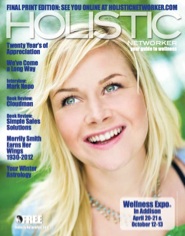In a hip area just east of downtown Fort Worth, Authentic Kung-Fu sits among tattoo parlors and cool restaurants. There you’ll find Steve Cottrell, master Kung Fu martial artist, hard at work passing down the legacy of Ttaiji (Tai Chi), Wing Chung, and Northern Praying Mantis Kung Fu. Students around the world refer to him respectfully as Sifu, which means “teacher” or “master” in Chinese.
I asked Sifu Cottrell a few questions about his school and his practice.
Q. What does it mean to practice martial arts?
In many ways Kung Fu is a metaphor for all of life. Life is about learning to take responsibility for ourselves. That includes the potential pain that we might inflict on another human being, whether we are lashing out at someone emotionally or physically defending ourselves. As we mature, hopefully we learn concern for other people and how to temper our responses.
The Chinese character for the word “martial” literally means “to stop the sphere.” It has less to do with fighting than it does with learning how not to fight, not to inflict pain. Because of their training, advanced Kung Fu students will not respond to someone’s anger. The student understands the dire consequences of inflicting great pain, whether physical or mental, on another human being.
Q. How does a person learn Kung Fu?
Martial arts is a path. The interesting thing about martial arts is that, although we call it an “art”, first you must learn tools. You learn balance and to move your body through strengthening and conditioning. Then you begin to learn dozens and dozens of techniques. Ultimately, the technique becomes so automatic that you become the technique; the separation between you and the technique disappears. At that point, Kung Fu becomes a discipline of mind and body and you can use it as a means of self-expression.
Q. Could Kung Fu be used for conditioning by someone who is out of shape?
Many schools emphasize the sport, which implies competition. At Authentic Kung-Fu the only person you compete against is the one between your shoulder blades.
The challenge comes not from any objective measure, like doing 100 push ups, but against what the individual is capable of, given their efforts. What a person can achieve is profound.
Q. What is the philosophy of your school:
1. To pass on an art that has survived for centuries and offers a life enhancing experience.
2. To enable people, if necessary, to defend themselves and their families.
3. Through the practice of martial arts, people can improve their mental and physical health.
4. If they’re lucky and diligent, people will find a depth of experience that has made martial arts a profound practice for thousands of years.
Q. Some say that a martial arts practice is also a spiritual practice. Would you agree?
If you are truly studying martial arts, how can it not be? I compare it to the Japanese Tea Ceremony. The Ceremony is sacred, not because people are drinking tea, but because two people come together with the agreement that they will be nothing else, do nothing else – except be present with the other – in the moment.
With Kung Fu training, your mind opens so that everything appears as one. If you are under attack by several people and you focus on one individual, all is lost. You must let go of thinking and memory and be completely in the moment.
 About Sifu Cottrell
About Sifu Cottrell
Not merely a theorist, Sifu Cottrell’s martial experience ranges from full contact matches to actual combat while executing his duties with the United States government. Sifu Cottrell has also been an instructor for military counter terrorist and special operations units. These experiences have been instrumental in the development of the unique approach to training used at Authentic Kung-Fu.
Authentic Kung-Fu
817.244.2347
2707 Race Street, Suite 105
Fort Worth, Texas 76111










